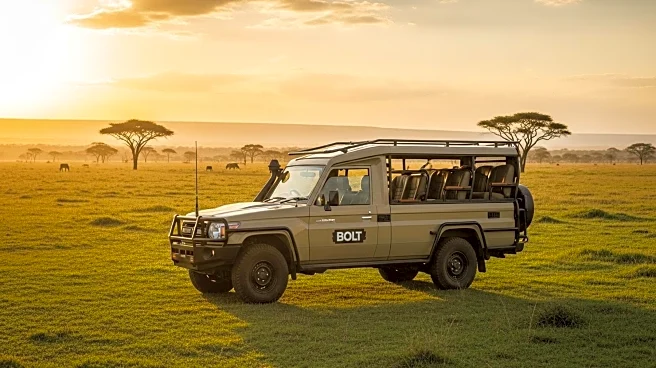What's Happening?
Bolt is set to enter the safari ride market in Kenya, positioning itself as a competitor to Uber. The company plans to offer safari-specific services, targeting parks, reserves, and tourist sites. This move is part of Bolt's strategy to expand beyond inner-city rides and tap into Kenya's growing tourism sector. The entry of Bolt into this market is expected to lead to competitive pricing and increased options for tourists.
Why It's Important?
Bolt's entry into the safari ride market could significantly impact the tourism industry in Kenya. By offering competitive pricing and reliable services, Bolt could attract more tourists and increase market competition. This could lead to better services and pricing for consumers, benefiting the tourism sector. Additionally, Bolt's expansion into safari rides could set a precedent for similar ventures in other African countries, potentially transforming the ride-hailing industry in the region.
What's Next?
As Bolt enters the market, it will need to address challenges such as vehicle suitability for off-road terrain and obtaining necessary permissions for park access. The company will also need to establish partnerships and ensure a seamless customer experience. If successful, Bolt's expansion could lead to further growth opportunities in the tourism and ride-hailing sectors across Africa.
Beyond the Headlines
The competition between Bolt and Uber in the safari ride market could lead to innovations in service offerings and customer experience. This rivalry may also encourage other ride-hailing companies to explore niche markets, driving further diversification and growth in the industry.









